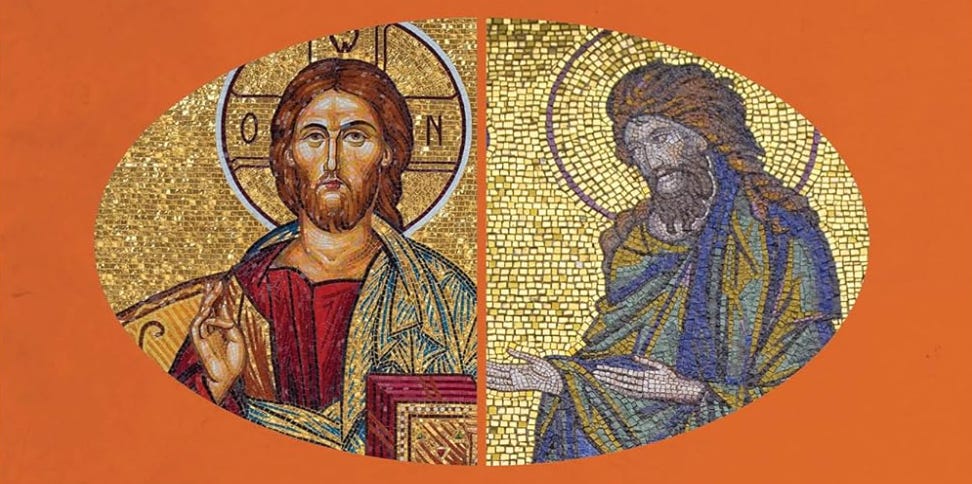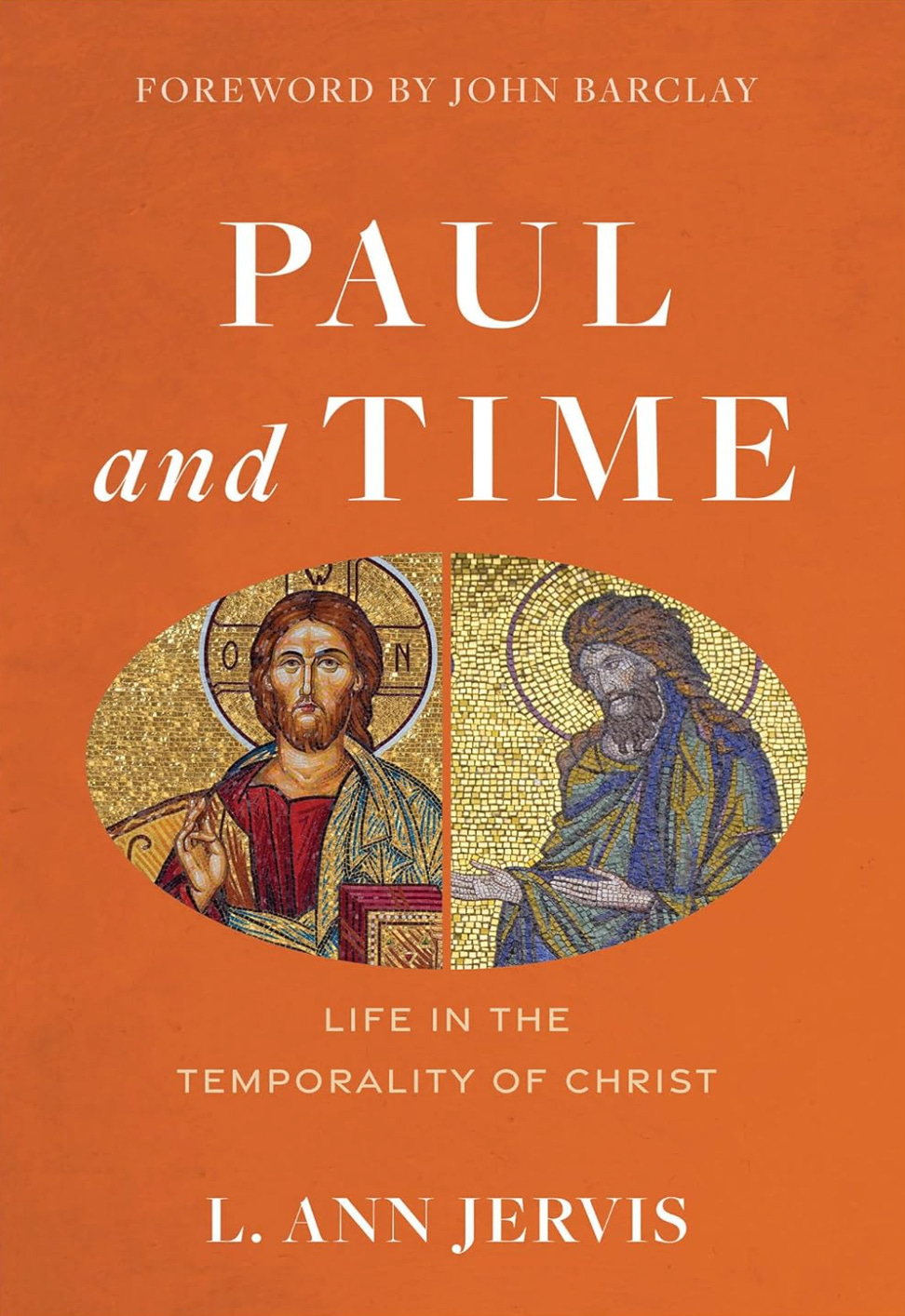God and Time. How does God relate to time? Is God temporal? The classical view of God and time, or God and God’s eternity, is that “God lives eternity, which is non-time, non-change – a now containing all moments at once.” That is, God is eternity. “This is, in effect, non-time.” This makes God above and outside time, totally. This is the question bedeviling the work of L. Ann Jervis in her work on Paul and now put together in a clear way in her new book, Paul and Time: Life in the Temporarity of Christ.
Factors at work in a philosophical, theological understanding of time have to do with change, with motion, with event, with actions, with shifts. And all wrapped up in life. And with tenses: past, present, future. The classical view sees God living past, present, future at the same time all the time. Humans, however, experience time as sequential and we organize life by time.
Jervis contends that “Paul worked with this commonplace understanding of time.” A major orientation for Jervis can be found in the words that open chapter four: “Union with Christ is union with Christ's time. Believers have access to the exalted Christ’s own temporality by virtue of their life in Christ.” Paul “understands there to be a primarily qualitative distinction: God lives a type of time that is life-time, not only because it does not end but, intrinsically related to its infinity, because there is in God's time only life. Life in life (life-time) has a completely different quality than life in death (death-time).”
Jervis, like most in the apocalyptic camp, connects her theology of Paul to the theology of Karl Barth, and she does this in this chp, but it is not central enough to dwell on here. What matters is that Barth, and even more his interpreter, George Hunsinger, thinks Paul believes God has “his own special mode of temporality.” The heart of time for Paul is life. But unlike Barth, Jervis does not believe Paul’s sense of time is to be connected to the inner being of God, to trinitarian thinking. (At least Paul does not do that.)
Here is a major way of framing her theology of time for Paul: “Paul thinks that God lives time. Paul understands God's temporality as eventful; in God’s temporality things change – at least between God and God's creation. The most significant change Paul describes is creation salvation by means of God's action of sending Christ. Along with this, the consequent events of the crucifixion and resurrection produce change in the relationship of God to creation and creation to God.” Repetition is the mother of all learning, and Jervis has mastered this form of writing and teaching (not unlike Barth!). God relates to creation in tenses.
The past: God condemned sin and God sent his Son and God raised Christ.
God has a history with creation as there is a “fullness of time” at which time God sent the Son. There is “temporal change” in the Son’s redemptive work. This is how she talks about Paul’s language of time when connected to God. It has to do with God’s work and relationship to creation.
Present: God tests hearts and in the future God will complete the work of redemption. “God's evident activity in human time indicates a divine eventful temporality, an active temporality that produces change – at least between God and God's creation.” God’s tenses – past, present, future – “are not sequential or discrete.”
The best part of this chapter discusses Paul’s two types of time, and I want to cite the texts she briefly uses to illustrate the two types of time:
Rom. 5:17 If, because of the one man’s trespass, death reigned through that one, much more surely will those who receive the abundance of grace and the gift of righteousness reign in life through the one man, Jesus Christ.
Rom. 5:21 so that, just as sin reigned in death, so grace might also reign through justification leading to eternal life through Jesus Christ our Lord.
Rom. 6:8 But if we died with Christ, we believe that we will also live with him. 9 We know that Christ, being raised from the dead, will never die again; death no longer has dominion over him. 10 The death he died, he died to sin once for all, but the life he lives, he lives to God. 11 So you also must consider yourselves dead to sin and alive to God in Christ Jesus.
Rom. 7:5 For while we were living in the flesh, our sinful passions, aroused by the law, were at work in our members to bear fruit for death. 6 But now we are discharged from the law, dead to that which held us captive, so that we are enslaved in the newness of the Spirit and not in the oldness of the written code.
Rom. 8:2 For the law of the Spirit of life in Christ Jesus has set you free from the law of sin and of death.
Gal. 5:24 And those who belong to Christ have crucified the flesh with its passions and desires.
What Jervis clarifies is that Paul frames the believers life in union with Christ. There are two types of time: life-time and death-time. Our union with Christ enters the believer into life-time. This union breaks the believer free from death-time. This is not an overlap of the ages but two different types of time. Believers are liberated from death; believers are free to live in Christ. Believers live in “chronological time” but “chronological time is environed by either death-time or life-time. The larger temporal environment of either death-time or life-time profoundly shapes existence in human chronological time.” One chronological experience is defined by death; the other is defined by life, by reigning with Christ in life. “In one type of time, the end reigns; in the other, Jesus Christ, life, and believers reign. There is flatness and finitude to time over which death rules, in effect making this temporality and illusion; there is texture and abundance in the (real) time that the ascended Christ shares with those united with him.”






Thank you